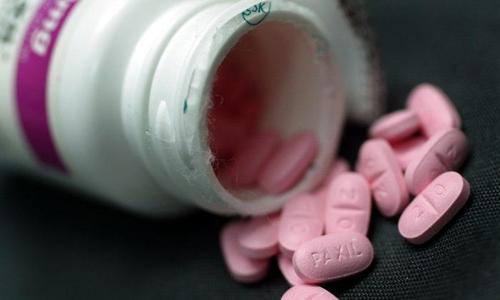An inexpensive antidepressant drug has been found to reduce the risk of hospitalization in high-risk adults recently diagnosed with COVID-19 by over 30 percent, according to a study published in The Lancet Global Health.
The study, titled, “Effect of early treatment with fluvoxamine on risk of emergency care and hospitalisation among patients with COVID-19: the TOGETHER randomised, platform clinical trial,” was published on Oct. 27.
Fluvoxamine is an FDA-approved drug that belongs to a group of medicines known as serotonin reuptake inhibitors (SSRIs).
It works by increasing the activity of serotonin—a key hormone that stabilizes an individual’s mood and feelings of well-being—in the brain and is typically used to treat obsessive-compulsive disorder (OCD) and depression, according to the National Institutes of Health (NIH).
The drug is also thought to have the ability to reduce inflammation , although further studies are required to determine this.
Researchers in Brazil analyzed 1,497 high-risk symptomatic Brazilian adults confirmed positive for SARS-CoV-2, including patients from 11 clinical sites across the country with a known risk factor for progression to severe disease.
Of the nearly 1,500 patients, 741 patients were prescribed 100 mg of fluvoxamine twice daily for 10 days and 756 were given a placebo.
Of those participants given the drug, 79 (11 percent) needed to be hospitalized for medical care compared to 119 (16 percent) in the placebo group.
Researchers said their analysis showed the drug cut the risk of hospitalization by 32 percent overall. Only one patient died while taking fluvoxamine, compared with 12 who died while on the placebo.
A 10-day course of fluvoxamine costs approximately $4, researchers said.
“Treatment with fluvoxamine (100 mg twice daily for 10 days) among high-risk outpatients with early diagnosed COVID-19 reduced the need for hospitalisation defined as retention in a COVID-19 emergency setting or transfer to a tertiary hospital,” researchers wrote.
The study noted that 84 participants stopped taking fluvoxamine and 64 participants stopped taking the placebo owing to issues of tolerability. Fluvoxamine can have side effects which include nausea, diarrhea, indigestion, insomnia, and drowsiness, as per NIH.
“Given fluvoxamine’s safety, tolerability, ease of use, low cost, and widespread availability, these findings might influence national and international guidelines on the clinical management of COVID-19,” researchers wrote.
“Fluvoxamine is widely available but is not on the WHO Essential Medicines List, whereas a closely related SSRI, fluoxetine, is on the list. It is now crucial to establish whether a class effect exists and whether these drugs can be used interchangeably for COVID-19,” researchers added.
Researchers also noted that the study focused primarily on unvaccinated patients and that further studies are needed to establish the drug’s effects among vaccinated populations.
Researchers have shared their results with NIH, which publishes treatment guidelines, and are hoping for a recommendation from the World Health Organization (WHO), U.S. News & World Report reported.
